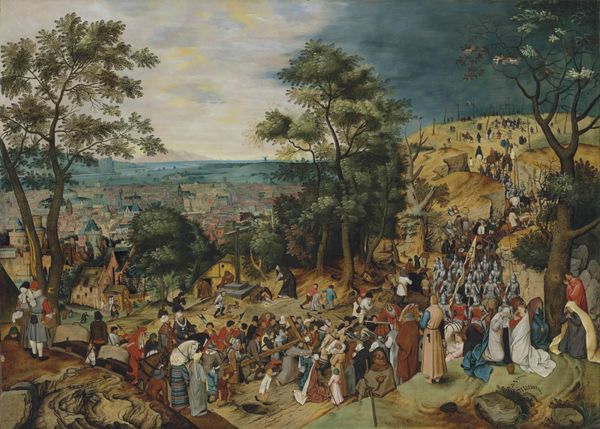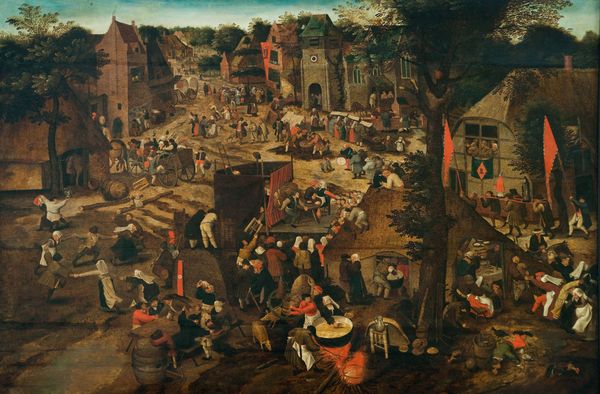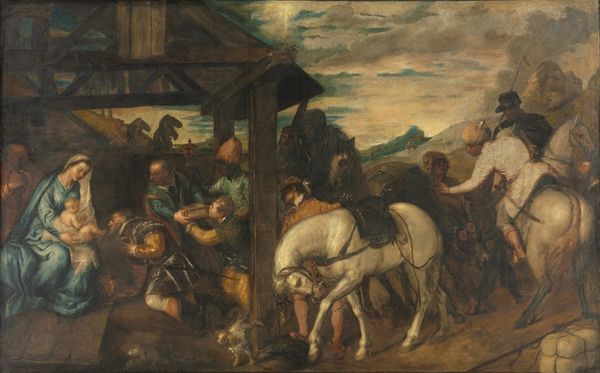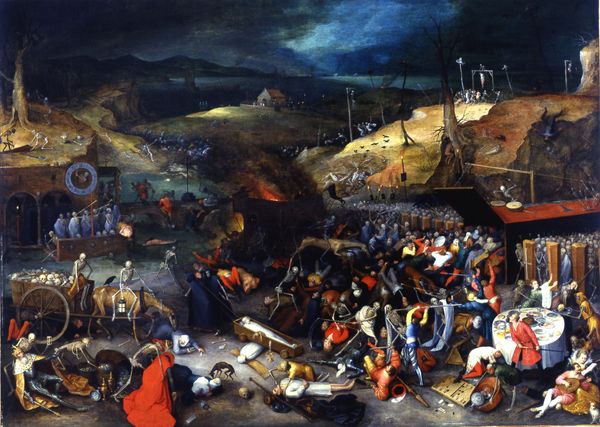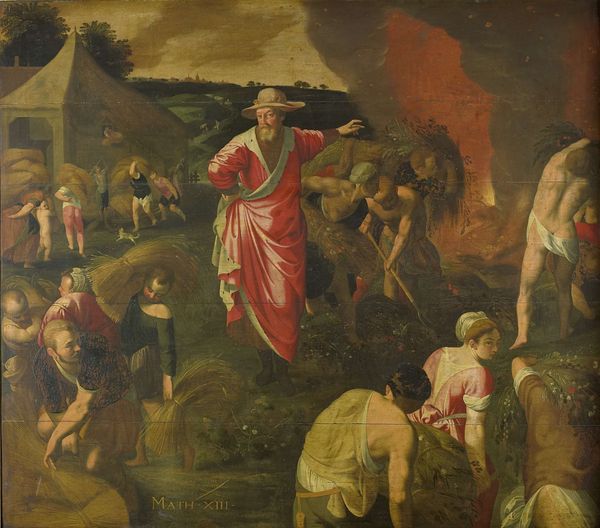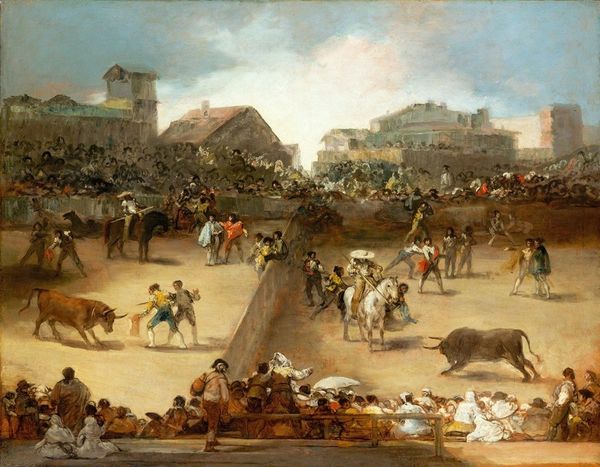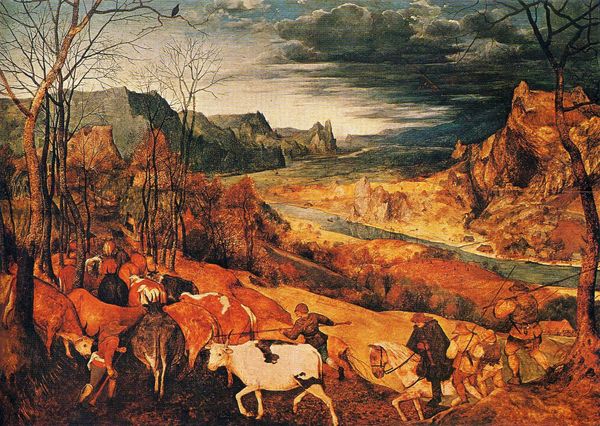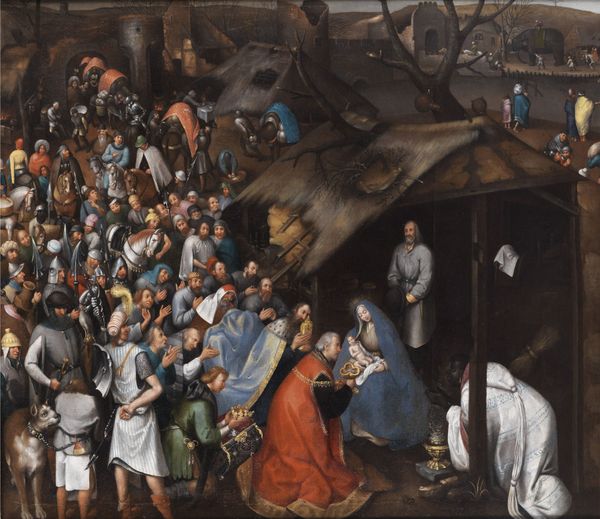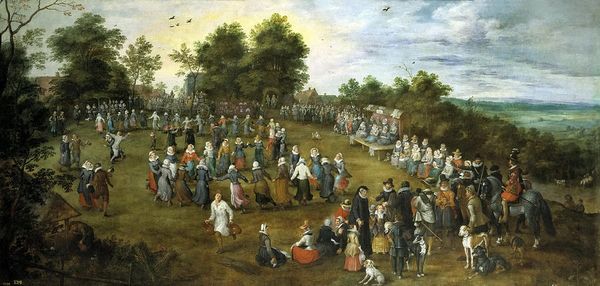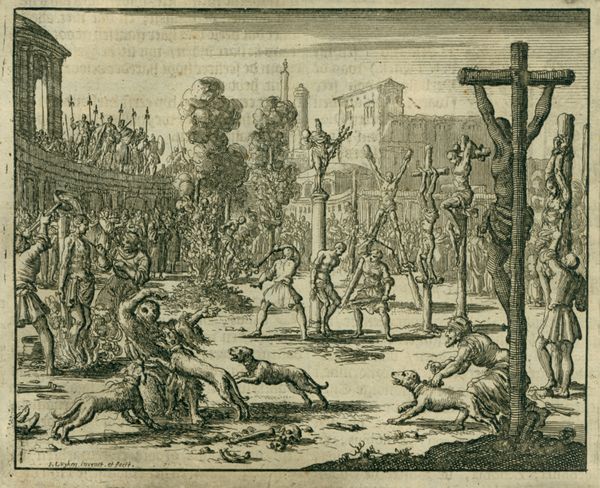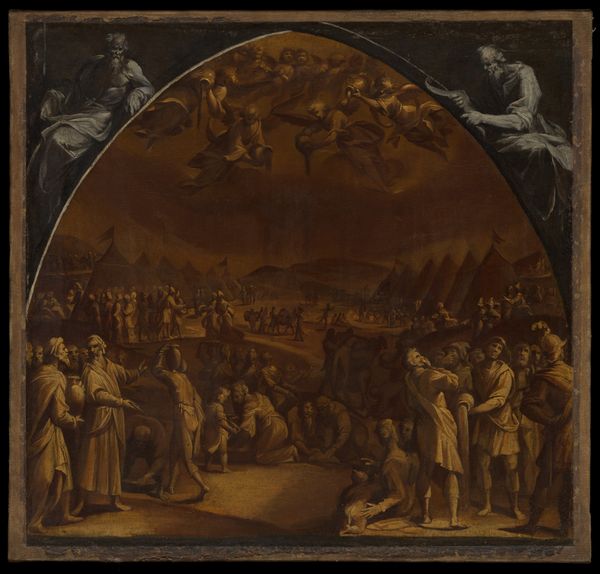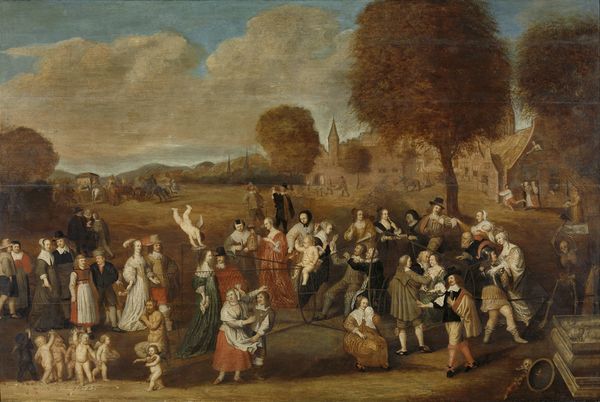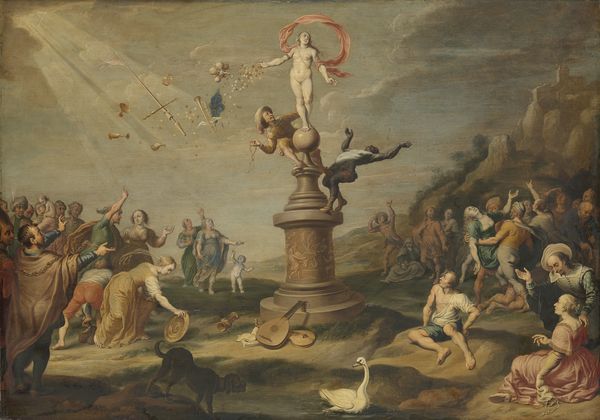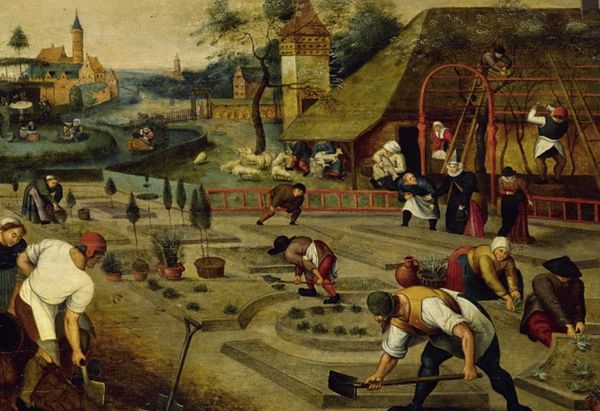
painting, oil-paint
#
narrative-art
#
baroque
#
painting
#
oil-paint
#
landscape
#
figuration
#
oil painting
#
history-painting
Copyright: Public domain
Pieter Brueghel the Younger painted "The Crucifixion" using oil paints, a blend of pigments and linseed oil, on a wooden panel. Unlike fresco or mosaic, oil allows for detailed brushwork, layering, and rich colors. Brueghel maximizes these qualities, conveying the chaotic scene with precision. The brown hue dominating the painting enhances the emotional weight, creating a somber and unsettling experience. While seemingly traditional, the painting's materiality connects to the 16th and 17th-century world of commerce and trade in pigments and wood, thus influencing the art's very existence and availability. Moreover, the labor involved in oil painting—grinding pigments, preparing the panel, applying layer after layer—reflects the broader social context of work and production, making us consider the material world that shaped even the most religious of images. The choice of oil and wood, combined with Brueghel's technique, underscores that even a religious subject is deeply rooted in material conditions and skilled labor.
Comments
No comments
Be the first to comment and join the conversation on the ultimate creative platform.
